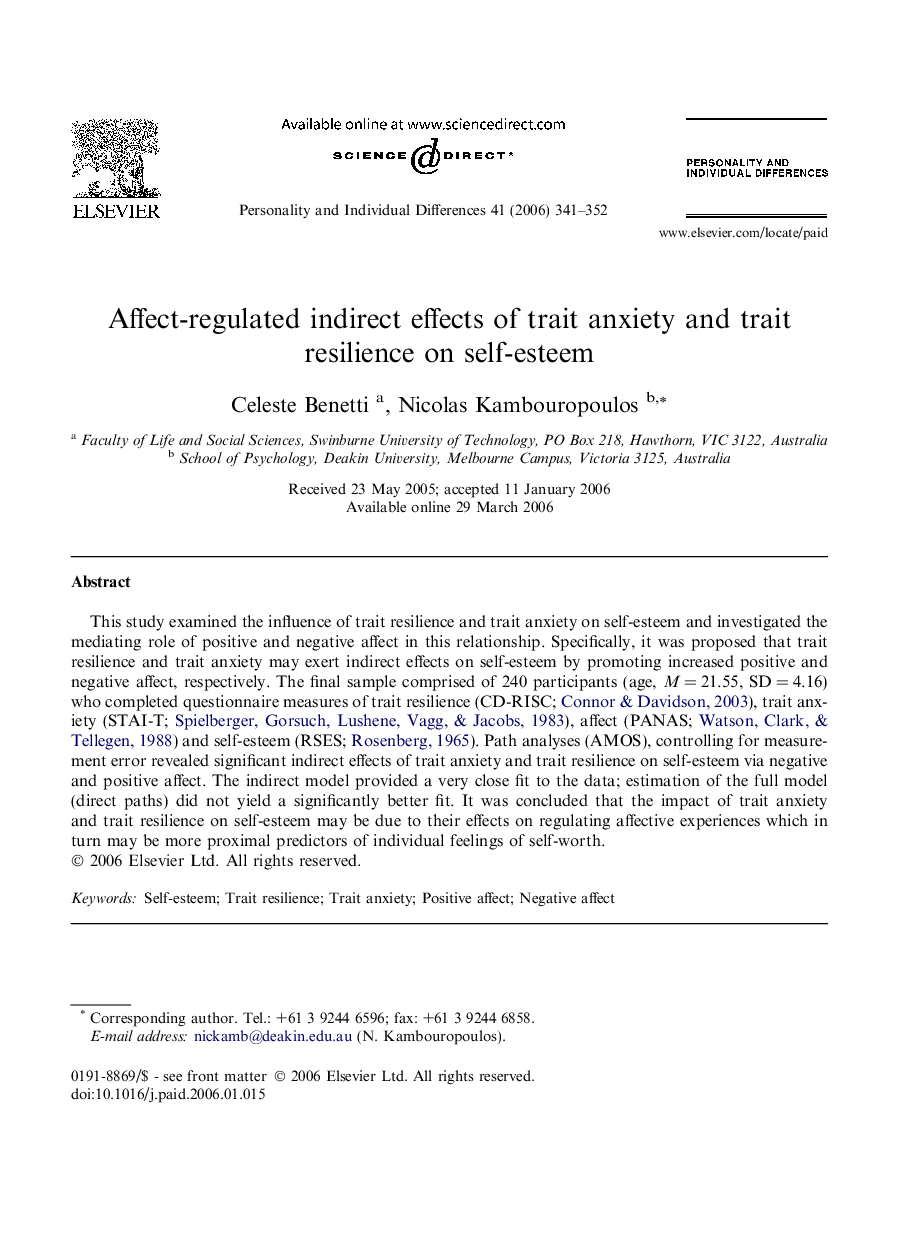| Article ID | Journal | Published Year | Pages | File Type |
|---|---|---|---|---|
| 893445 | Personality and Individual Differences | 2006 | 12 Pages |
This study examined the influence of trait resilience and trait anxiety on self-esteem and investigated the mediating role of positive and negative affect in this relationship. Specifically, it was proposed that trait resilience and trait anxiety may exert indirect effects on self-esteem by promoting increased positive and negative affect, respectively. The final sample comprised of 240 participants (age, M = 21.55, SD = 4.16) who completed questionnaire measures of trait resilience (CD-RISC; Connor & Davidson, 2003), trait anxiety (STAI-T; Spielberger, Gorsuch, Lushene, Vagg, & Jacobs, 1983), affect (PANAS; Watson, Clark, & Tellegen, 1988) and self-esteem (RSES; Rosenberg, 1965). Path analyses (AMOS), controlling for measurement error revealed significant indirect effects of trait anxiety and trait resilience on self-esteem via negative and positive affect. The indirect model provided a very close fit to the data; estimation of the full model (direct paths) did not yield a significantly better fit. It was concluded that the impact of trait anxiety and trait resilience on self-esteem may be due to their effects on regulating affective experiences which in turn may be more proximal predictors of individual feelings of self-worth.
